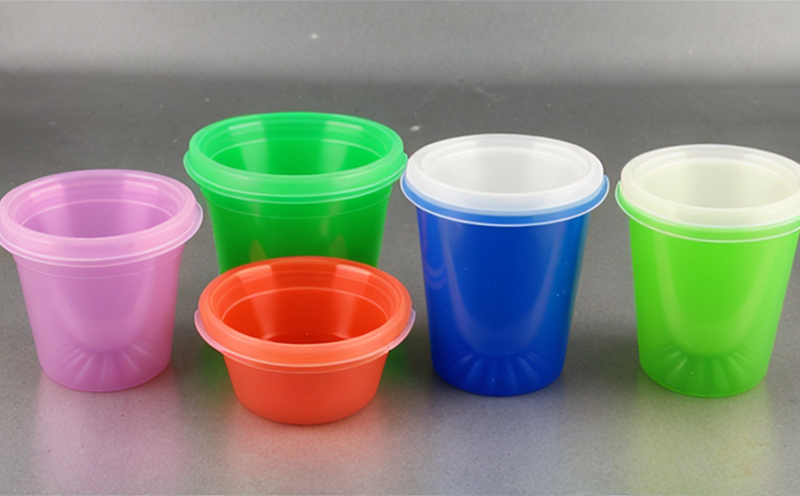NF EN 607 Disposable Plastics Fire Resistance Testing
The NF EN 607 standard is designed specifically to evaluate the fire resistance of disposable plastics. This testing procedure ensures that products meet stringent safety standards, protecting users and environments from potential hazards associated with flammable materials.
Disposable plastics are widely used in sectors such as healthcare, food service, and consumer goods due to their convenience and cost-effectiveness. However, the fire resistance of these materials is crucial for preventing fires and ensuring user safety. NF EN 607 provides a standardized method to assess how well disposable plastics perform under high-temperature conditions.
The test involves subjecting specimens of the disposable plastic products to controlled flame exposure over specified durations and temperatures. The primary objective is to measure the time it takes for the material to ignite, burn, or extinguish after removal from the flame source. This information helps manufacturers understand the fire resistance properties of their materials and identify areas for improvement.
The testing process typically includes detailed specimen preparation guidelines, such as ensuring uniform thicknesses across samples to minimize variability in test results. The apparatus used for this test is designed to provide consistent heat exposure, ensuring reliable data collection.
Acceptance criteria are based on the time the material remains ignited after removal from the flame source and its ability to self-extinguish without further external fuel. Compliance with these criteria ensures that products can be safely disposed of or used in environments where fire risks are present.
This testing is particularly important for healthcare facilities, which often use disposable plastics in medical devices and packaging. Hospitals, clinics, and other healthcare providers rely on safe materials to prevent fires and protect patients and staff from potential burns or inhalation of toxic smoke.
For food service industries, the fire resistance of utensils, containers, and packaging is critical for preventing accidental fires that could contaminate food products. Similarly, consumer goods manufacturers must ensure their disposable plastics meet fire safety standards to protect end-users in homes and public spaces.
The NF EN 607 standard ensures consistent testing across different laboratories by providing clear procedural guidelines. This consistency is vital for manufacturers who need reliable data to support product development and regulatory compliance.
Manufacturers can use the results of this test to make informed decisions about material selection, processing techniques, and design changes. By optimizing fire resistance properties, they can enhance the safety of their products while maintaining cost-effectiveness and performance standards.
- Accurate and reliable testing results using state-of-the-art equipment.
- Experienced technical staff with deep knowledge of fire resistance testing.
- Comprehensive support for all aspects of product development, from initial design to final approval.
- Strict adherence to international standards and best practices.
- Quick turnaround times for test results, ensuring timely delivery of reports.
Why Choose This Test
The NF EN 607 fire resistance testing is essential for manufacturers seeking to ensure the safety and reliability of their disposable plastics. By adhering to this standard, companies demonstrate a commitment to quality and compliance with international regulations.
This test provides valuable insights into the performance characteristics of materials under specific temperature and flame exposure conditions. It helps identify potential weaknesses in design or manufacturing processes that could lead to fire hazards. Manufacturers can use these findings to improve product safety and reduce risks associated with fires in various environments.
Compliance with NF EN 607 is also crucial for regulatory purposes, ensuring products meet the requirements set by government agencies and industry bodies. This compliance helps manufacturers avoid costly recalls or legal issues that could arise from non-compliant products.
The test results can be used to support marketing claims about fire safety, which can enhance brand reputation and consumer trust in product quality. Additionally, meeting these standards can open up new markets for manufacturers by demonstrating their commitment to high-quality products.
International Acceptance and Recognition
- The NF EN 607 standard is widely recognized in Europe and beyond, ensuring consistent testing procedures across different regions.
- This international acceptance facilitates easier trade between countries that recognize the same standards for fire resistance testing.
- Products tested to NF EN 607 can be exported with confidence, knowing they meet global safety requirements.





